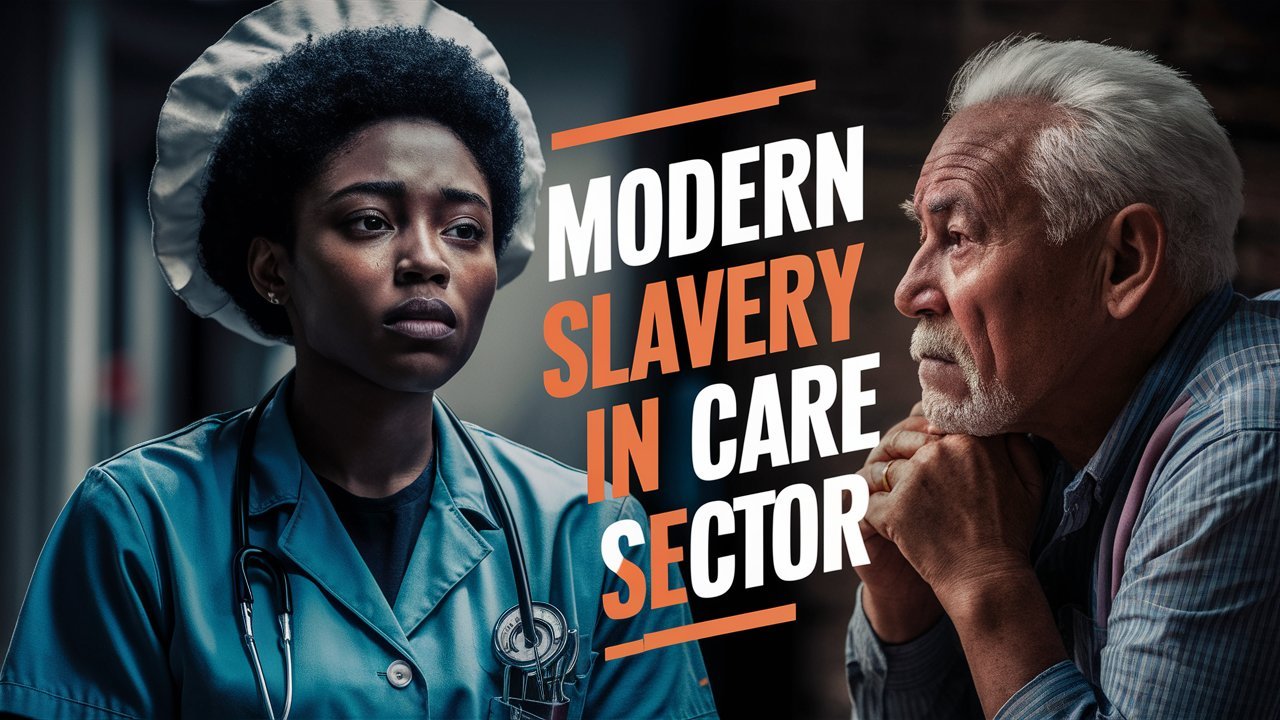To learn more about the work of Social Care Research Ltd click on the button below:
OUR WORK
Our research informs the actions we take to address challenges encountered by at-risk groups in the UK, specifically paid carers and elderly individuals facing unequal or inadequate care. A notable instance of our evidence-based approach was the establishment of CAAMS, the Carers Association Against Modern Slavery. CAAMS emerged as a pivotal initiative, a direct outcome of our research, which revealed that carers in UK private homes are frequently viewed as disposable workers and the stakeholders within the care sector have shown a lack of initiative to rectify this issue because the service is not regulated. In a typical live-in caregiving scenario, the availability of someone to respond to night calls for the care of older adults with mental health issues is crucial. However, many families are hesitant to employ an additional caregiver for this specific role. As a result, one caregiver is compelled to work around the clock, a situation that can be considered exploitative. Due to the unregulated nature of these services, neither the Care Quality Commission (CQC) nor local authorities intervene in such scenarios. Our research highlighted the absence of legal protection, substandard working conditions, and insufficient support systems as the primary challenges faced by this vulnerable group.

It’s commonly understood that governments around the world do not naturally protect the rights of vulnerable workers unless pressured by civil society organisations or by those directly impacted, such as through strikes. Carers, however, are independent workers in concealed settings where power imbalances make it challenging for them to advocate for improved working conditions on their own. The approach was to unite carers to stand against contemporary slavery in the care sector and collectively negotiate for increased wages and advocate better working conditions. CAAMS’ goal is to empower carers to resist being exploited as slaves in UK private homes. It is designed to provide carers with a stronger unified voice to fight for better compensation and better working conditions in the care sector.
Social Care Research is committed to the development of decisions and strategies grounded in dependable and unbiased data. We hold the view that the formulation of policy should be influenced by the perspectives of those it affects. Specifically, our focus areas include contemporary slavery and disparities in care. Consequently, we endorse the idea that the success of policies and initiatives aimed at combating slavery can only be truly measured and enhanced by those directly affected by them. As a result, our efforts include the utilisation of data, research insights, and expert evaluations to comprehend issues, pinpoint successful strategies, and evaluate the potential results of various policy alternatives, while also promoting these policies among relevant stakeholders.
Our evidence-led action is guided by:
Data and Research: We utilise empirical data and rigorous research to understand the current situation, trends, and underlying causes of issues or challenges.
Objective Analysis: We apply unbiased analysis and interpretation of evidence to assess the effectiveness and feasibility of potential actionable interventions. Based on the findings we develop actionable recommendations and tailor solutions to address the specific challenges identified in the research.
Implement Solutions: We work with relevant stakeholders for example policymakers, organisations, community groups to put recommendations into practice. Develop programs, policies, or interventions aimed at solving the problem.
Monitor and Evaluate: We continuously monitor the implementation of solutions. We evaluate interventions to determine their impact, effectiveness, and any unintended consequences and make necessary adjustments.
Expert Input: Our experts are usually the people affected by modern slavery or those that received unequal care. We provide the platform for them to have their say in what they think should be done for everything to be fair and just for all. We also involve experts from care sector to provide specialised knowledge and insights into proposed interventions.
Transparency: We make the evidence and reasoning behind our evidence-led action transparent to stakeholders, including the public, to build trust and accountability. We share the research findings and successful interventions with the wider community.

Adaptation: We are flexible and willing to adjust our interventions based on new evidence and changing circumstances to ensure they remain effective and relevant to our targeted audience.
Overall, we engage with the care sector stakeholders and encourage them to use our work for evidence-led action and policy development which aims at improving the quality and efficacy of policies by grounding decisions in a thorough understanding of reality rather than ideology or anecdotal evidence. This approach increases the likelihood that policies will achieve their intended outcomes and contribute positively to societal goals.
Committed To Changing The Status Quo.
Uniting Research and Care for Stronger Communities
“A fundamental concern for others in our individual and community lives would go a long way in making the world the better place we so passionately dreamt of.”
Nelson Mandela - Kliptown, Soweto, South Africa, 12 JULY 2008
Kliptown, Soweto, South Africa, 12 JULY 2008

- Are you carer?
Have you heard about CAAMS?
The Carers Association Against Modern Slavery (CAAMS) is a groundbreaking project that was launched in response to our research findings. The purpose of this project is to support and empower carers who are at risk of being exploited and mistreated in UK private homes
- Are you carer?
Why Not Join CAAMS Today!
Join us on this transformative journey as we equip you with the knowledge, insights, and tools needed to combat modern slavery within social care. Together, let’s bring about tangible change and create a future where every carer is treated with dignity and respect.
Engage With Us
info@socialcareresearch.co.uk
